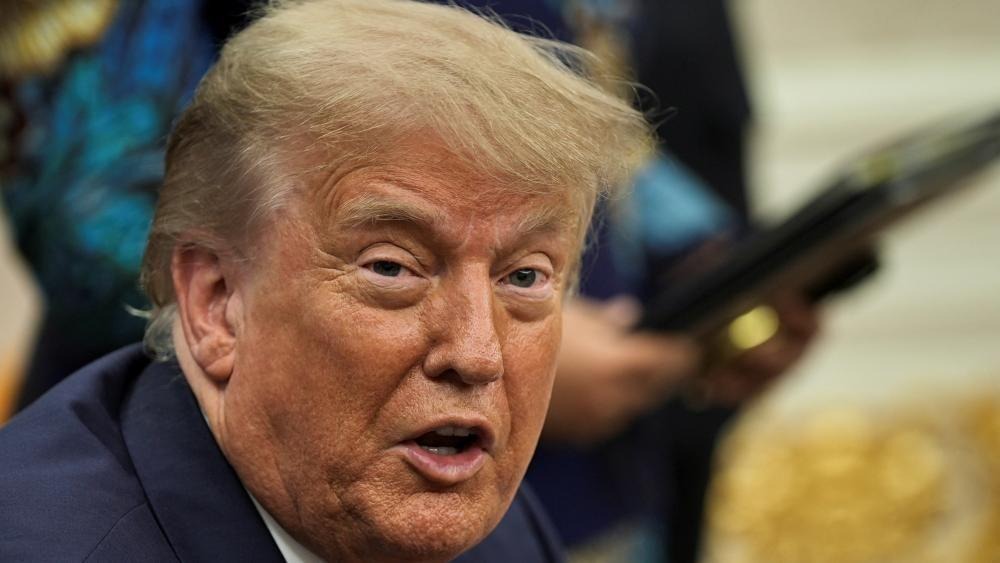- May 22, 2025
Trump’s Budget Plan Moves Forward, but GOP Faces Internal Divisions Before Final Vote
- Jul Wed, 2025
- in International

Donald Trump’s sweeping tax and spending proposal is one step closer to becoming law, but deep divisions within the Republican Party could still derail the process before the president's self-imposed July 4th deadline.
The Senate narrowly approved the bill on Tuesday after a marathon debate, with Vice President JD Vance casting the deciding vote amid pushback from conservative senators. The legislation now heads back to the House of Representatives, where it faces a challenging path.
House Speaker Mike Johnson is aiming to bring the revised bill to a vote as early as Wednesday. Although the House previously passed an earlier version of the package by just one vote in May, it now must be reconciled with the Senate's version.
While Republicans control both chambers of Congress, ideological rifts are surfacing over key elements of the legislation — especially its impact on the national deficit and cuts to healthcare and social safety net programs.
⚠️ Deficit Concerns and GOP Rebellion
The Congressional Budget Office (CBO) estimates that the Senate’s version of the bill would add $3.3 trillion to the U.S. deficit over the next decade — even more than the $2.8 trillion projected under the House version.
That has sparked outrage from fiscal conservatives, particularly the House Freedom Caucus. Influential voices like Elon Musk — a former Trump adviser and donor — have also criticized the growing debt, further fueling dissent.
Representative Ralph Norman (SC) labeled the Senate’s version “unconscionable” and pledged to oppose it. Fellow Freedom Caucus member Chip Roy (TX) expressed deep skepticism, saying support for the bill had "dropped dramatically" in recent days due to backroom dealmaking.
Freedom Caucus Chair Andy Harris (TN) also voiced concern, warning that no progress would be made without addressing deficit issues: “Elon Musk is right. These deficits are unsustainable.”
Representative Andy Ogles (TN) even filed an amendment to fully replace the Senate’s proposal with the original House version, calling the upper chamber’s plan a “dud.”
🧩 Internal GOP Fractures: Conservatives vs. Moderates
Beyond fiscal hawks, Republican leadership must also address concerns from moderates representing swing districts — especially in more liberal-leaning states.
Representative David Valadao (CA) warned he would not support any final version that jeopardizes Medicaid funding or healthcare provider stability. His view aligns with Democratic opposition and several Republicans from poorer districts who worry about how budget cuts could affect their constituents.
The Senate version deepens cuts to Medicaid and food assistance programs. While the House version would remove healthcare coverage for an estimated 11 million Americans by 2034, the Senate’s plan could strip coverage from up to 12 million, according to CBO estimates.
These revisions are making it difficult for Republicans like Marjorie Taylor Greene (GA) to support the bill. In a conversation with former Trump adviser Steve Bannon, Greene described the situation as “dire” and said the House lacked the votes to simply approve the Senate’s version.
💰 Tax Cap Debate Adds Another Layer
The bill also reopens debate over the cap on federal deductions for state and local taxes (SALT). Currently set at $10,000, both the House and Senate agreed to raise the cap to $40,000 — but only temporarily.
Under the Senate’s version, the higher cap would expire after five years, reverting to $10,000 — a detail that could impact the support of Republicans from high-tax states.
⏳ Final Countdown
With just days left before Trump’s July 4 deadline, House Republicans face mounting pressure to either unite or risk collapsing the legislative effort. While some lawmakers like Randy Fine (FL) admit frustration with the Senate’s changes, they see the bill as a compromise worth passing.
Still, with factional disputes unresolved and multiple members threatening to vote no, the road ahead is anything but certain.




